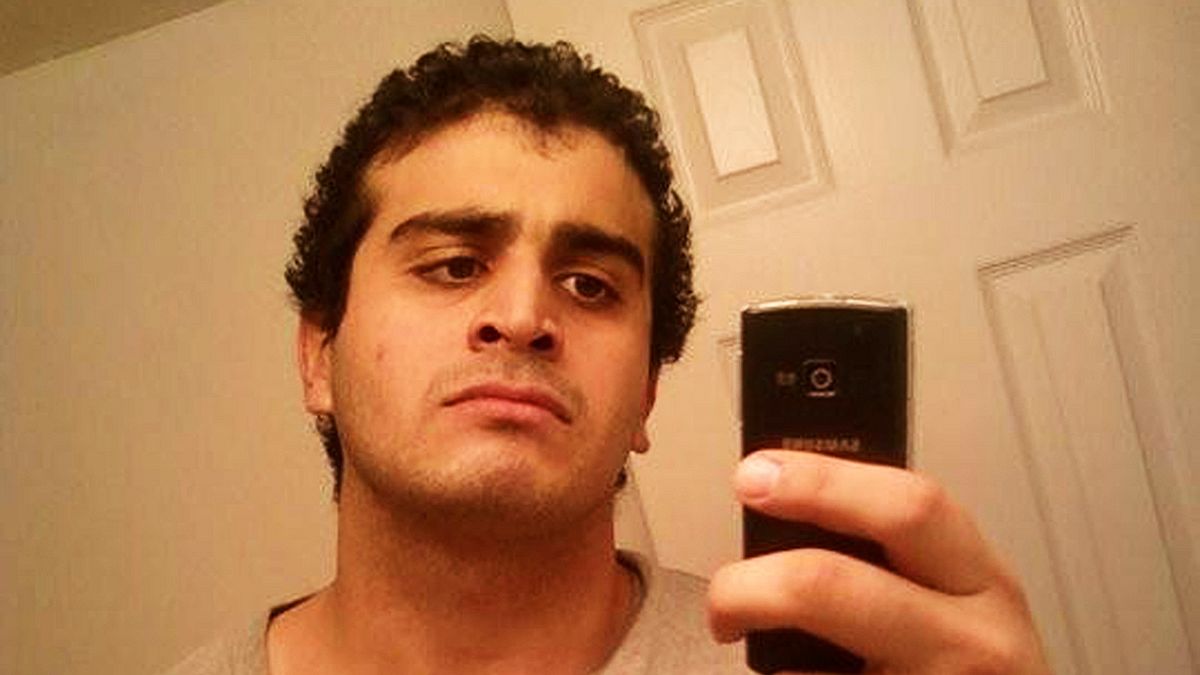Omar Mateen aspired to be a police officer and had once applied to join a police academy.
Omar Mateen aspired to be a police officer and had once applied to join a police academy. He worked at a centre for juvenile delinquents as a correctional officer.
More recently he was an armed guard for a gated retirement community in South Florida.
A former co-worker said that Mateen’s anger was “constant.”
He was known to the FBI who said he was investigated for suspected ties to Islamist militants.
Mental health issues
His former wife Sitora Yusifiy spoke about of his mental health issues.
“A few months after we were married I saw his instability and I saw that he was bipolar and would get mad out of nowhere,” Yusifiy said. “That’s when I started worrying about my safety and then after a few months he started abusing me physically, very often and not allowing me to speak to my family, keeping me hostage from them and I tried to see the good in then even then but my family was very tuned into it and decided to visit me and rescue me out of that situation.”
Islamic Centre
Imam Syed Shafeed from the Islamic Center in Fort Pierce said Mateen attended prayer services there several times a week.
“I’m saying that he (Omar Mateen) was very quiet,” said Shafeed. “He would come the last minute and he would leave the first minute. And he would not talk to anybody. And when somebody would shake hands with him he would smile and shake hands with them and he would leave. And he would bring the five-year-old son with him and the son would be playing around him and he would be busy with his prayer and then he would take his son on his shoulders and he would just leave.”
G4S
Mateen was an armed security officer for the controversial security firm G4S. The company was trying to ascertain whether any guns used in the attack were related to Mateen’s work, said a spokesman who declined to be named.
An FBI spokesman said on Sunday that FBI agents had twice interviewed Mateen in 2013 and 2014 after he made comments to co-workers indicating he supported militant groups, but neither interview led to evidence of criminal activity.
G4S has come under fire from rights advocates for providing services to Israeli prisons holding Palestinian detainees, and the Bill and Melinda Gates Foundation said in 2014 it sold its stake in G4S.
Three of the firm’s security guards were acquitted of manslaughter charges in 2014 in the cardiac arrest death of an Angolan aboard a flight from London whom they were repatriating to his native country.
The British government said in 2014 that G4S would repay millions for overcharging it on a contract to tag criminals with monitoring devices.
The use of private security firms has risen sharply since the 9/11 attacks, said Paul Goldenberg, who sits on the US Department of Homeland Security’s Advisory Council and advises American Jewish organizations on security matters.
In many cases, private security guards are not particularly well-trained or well-paid, and do not receive a second background check in the years after they are hired, Goldenberg said, noting most states did not regulate the industry.
A guard might be watching over an empty warehouse one day, and a religious institution or school, with entirely different security concerns, the next, he said.
